India's election was an eye-opener for struggling democracies

The late Atal Bihari Bajpai, former Indian prime minister and founder of Bhartiya Janata Party (BJP) and the National Democratic Alliance (NDA), has seldom been mentioned in the last 10 years. Lal Krishna Advani, who led the demolition of the 300-year-old disputed Babri Mosque, has remained uninvolved, and even Jagat Prakash Nadda, the current party president, is not given a speck of the spotlight. It's only Prime Minister Narendra Damodar Das Modi who has featured prominently in posters or hoardings. Even the all-powerful Home Minister Amit Shah, regraded as the second man in the BJP hierarchy, was not seen anywhere near the PM in important events like inaugurating the new parliament building, or the spectacular opening of Ram Mandir in Ayodhya, where the Babri Mosque once stood.
Over the last 10 years, it has been Modi, Modi and Modi in Indian politics and on the political canvas, even downsizing the images of Gandhi and Nehru.
Narendra Modi ruled India with an iron hand, transforming the nation, perhaps for the first time in its history, into what has been labelled as an "electoral autocracy" and "flawed democracy" by the Sweden-based V-Dem Institute. With no effective opposition in the 16th and 17th Lok Sabha, the BJP government essentially became a one-man show. Consequently, the "largest democracy in the world" slipped further to the 53rd position in the democracy index. Perhaps it was the mistake of the Indian voters who handed a landslide victory to Modi's BJP last time, without any counterforce to act as a check and balance.
However, in the recently concluded 18th Lok Sabha election, Indian voters did not make the same mistake. About 66 crore voted to demote Modi from the status of a self-proclaimed "god-sent avatar" to just a mortal human being. BJP could only secure 240 seats in the 2024 elections, falling short of the 272 seats needed to solely form the government. It had to seek support from its partners in the NDA, particularly from the Janata Dal (United)—headed by veteran politician and nine-time chief minister of Bihar, Nitish Kumar—with 12 seats, and the Telugu Desam Party (TDP)—led by yet another seasoned politician from Andhra Pradesh, Chandrababu Naidu, with 16 seats.
What it means is that Modi, as the third-time prime minister of India, will not head a BJP government as he did in the last two terms. He has to lead a coalition government with two seasoned politicians by his side. It means that he has been brought down from being the single decision-maker of state affairs to a head of a consultative body, as should have been the case in a democracy.
On the other hand, voters have also provided a formidable opposition in the form of the Indian National Congress (INC) with 100 seats (including a rebel MP who joined) and its allies under the Indian National Developmental Inclusive Alliance (INDIA) with 234 seats. This marks the first time in 10 years that a robust opposition has emerged.
Now, the question arises: why did the BJP fall short of securing enough power to form a government when they were confident of achieving an absolute majority of around 400 seats with the strong slogan "Ab ki bar char sau par" (this time over 400)? That number would have enabled the BJP to amend the constitution. The party unequivocally expressed its intention to transform India from a secular to a religion-based country (a Hindu state). Their agenda included not only making India a Hindu land but also advocating for the slogan "one country, one election," which meant combining general elections with state elections to perpetuate power for the BJP. It was evident that Hindutva was the rallying cry throughout the two terms of BJP.
Over the past decade, the significant minority of Indian Muslims, comprising over 20 percent of the population, largely marginalised socially, were deliberately targeted. School and college textbooks underwent revisions, with chapters pertaining to the 700-year Muslim period deleted and characterised as invasions. Names of places were altered in some regions. In numerous states, vigilante groups like "Go Rakshak" emerged, engaging in unchecked violence against Muslims suspected of consuming beef or participating in related activities. Modi and Amit Shah, collectively referred to as MoSh, branded the country's minority communities as "Ghus baithi" (infiltrators) and likened them to "children-producing factories." They even stoked fear among India's Hindu majority, suggesting that if the opposition were to come to power, properties and gold would be seized and distributed among Muslims. Such divisive rhetoric, unprecedented in India's political history, provoked outrage among liberal and secular voters. Modi was branded as the "Divider in Chief" by Time magazine in 2019.
It wasn't just Muslims, but also Other Backward Castes (OBCs) of India, particularly Dalits, who were significantly disregarded. It's worth noting that Uttar Pradesh, a state considered to be the stronghold of Hindus and the Hindi belt, is home to the largest population of Dalits and Muslims. Here, Chief Minister Aditya Nath Yogi aimed to secure a minimum of 72 seats but failed to do so. Instead, the BJP lost a significant number of seats, mainly to the OBC-based Samajwadi Party led by Akhilesh Yadav. Moreover, BJP lost seats in Ayodhya, where Modi had inaugurated Ram Mandir a few months prior. Additionally, the party lost five other Lok Sabha constituencies in holy places like Kashi and Varanasi.Losses in Uttar Pradesh, Punjab, and West Bengal brought down the BJP, making it dependent on other partners of the NDA.
In Ayodhya, BJP ignored the fact that they built the temple with all the religious fervour at the cost of poor Dalits of the area, whose houses and businesses were destroyed without payment of adequate compensation.
Perhaps the party was certain that Indian voters would be mesmerised by the BJP's Hindu card, ignoring the fact that around 40 percent Indians still live below the poverty line. They are grappling with high prices of essential commodities, soaring inflation rates, increasing youth unemployment, and endemic corruption. Meanwhile, the government resorted to silencing opposition voices through coercive measures wielded by the central government. Opposition leaders and activists were harassed and jailed, their funds frozen. The inefficacy of democratic institutions exacerbated the BJP's downfall in 2024. Another factor overlooked by the BJP government was the burgeoning influence of alternative and powerful social media platforms, which countered the decline in press freedom and the dominance of crony media. The contributions of civil society organisations were also remarkable. Despite facing intimidation and fear, these organisations persevered, utilising technology alongside social media to drive home their agendas.
Nevertheless, India's democratic institutions, electoral integrity, and practice of liberal democracy have long served as influential models for postcolonial Afro-Asian countries, especially those in South Asia. However, this influence was disrupted by the regression of democracy in India. The South Asian powerhouse's democratic backsliding did not bode well for the neighbouring countries.
Although Modi has become the prime minister of India for the third consecutive term and may compare himself to Nehru, he now relies on two more secular regional leaders, political tacticians who could potentially outmanoeuvre the Modi-Shah duo. The current NDA government marks the end of the BJP government, at least for the time being. It will face a robust opposition scrutinising and challenging every misstep both inside and outside the parliament. This has brought relief to democratic and liberal Indians of diverse religious, cultural, and ethnic backgrounds and given them hope that the 18th Lok Sabha may herald the return of a tolerant, secular India reminiscent of the Gandhian-Nehruvian era.
Brig Gen (retd) Dr M Sakhawat Hussain, former election commissioner of Bangladesh, is senior fellow at the South Asian Institute of Policy and Governance (SIPG), North South University (NSU).
Views expressed in this article are the author's own.
Follow The Daily Star Opinion on Facebook for the latest opinions, commentaries and analyses by experts and professionals. To contribute your article or letter to The Daily Star Opinion, see our guidelines for submission.
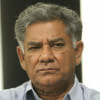

 For all latest news, follow The Daily Star's Google News channel.
For all latest news, follow The Daily Star's Google News channel. 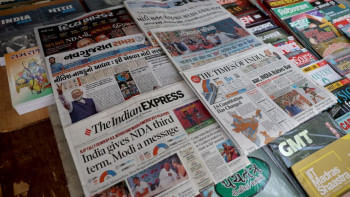
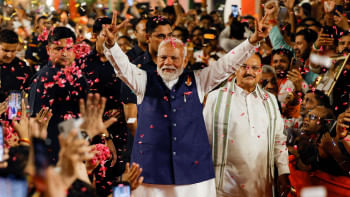
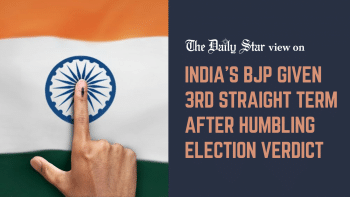


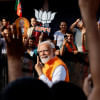


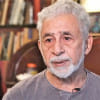
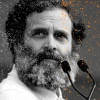


Comments